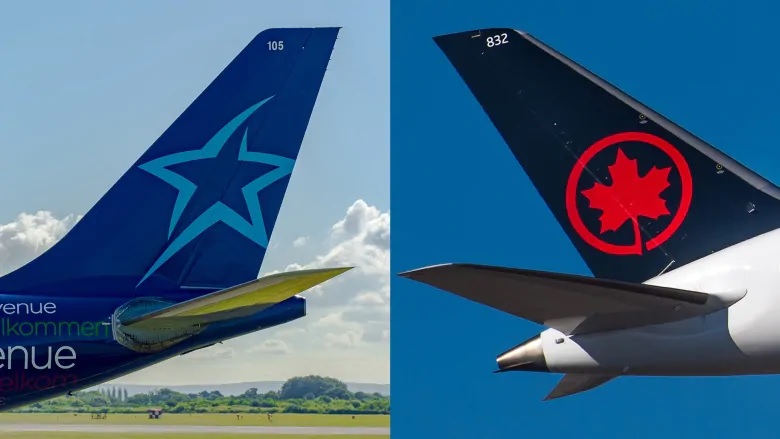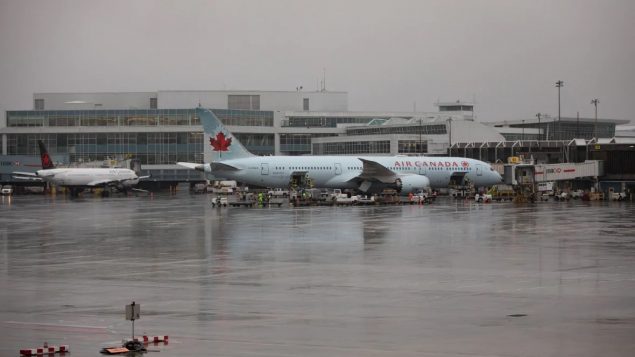Like an overmatched fighter on the ropes against an opponent who won’t let up–in this case, a powerful pandemic that shows no mercy--Air Canada keeps looking for an opening, trying to find a way out of mess it had nothing to do with creating, in a world gone horrendously bad for anyone connected to any part of the travel industry.
According to the International Air Transport Association, global travel demand hit its lowest level ever in 2020–falling by 65.9 per cent compared to 2019.
Air Canada has been anything but immune.
The company’s getting pummeled.
In November, the company reported it lost $3.4-billion in the first nine months of 2020, as ticket sales fell by almost 90 per cent.
Today, Air Canada released its 2020 fourth quarter financial report.
It was worse than expected: a loss of $1.16 billion.
Analysts polled by financial data firm Refinitiv had predicted that Air Canada would lose $735.67 million.
(For perspective, consider that the company reported a profit of $152 million in the last quarter of 2019.)
The 2020 fourth quarter report came a day after Air Canada received permission from the federal government to buy a competing airline, Transat A.T. Inc., under a series of strict terms and conditions the government says “are in the interest of Canadians.”

The federal government on Thursday approved Air Canada’s purchase of competing airline Transat A.T. Inc. under a series of strict terms and conditions. (Shutterstock)
Known to most Canadians as Air Transat, the carrier whisks them away to warm southern vacations in winter and is the third largest airline in the country.
A statement released by the office of Transport Minister Omar Alghabra said the impact of COVID-19 was a key factor in the final decision to approve the $190 million purchase, a significant decrease from an earlier $720 million agreement.
“Given the devastating impact of the COVID-19 pandemic on the air industry, the proposed purchase of Transat A.T. by Air Canada will bring greater stability to Canada’s air transport market,” Alhabra said in the statement.
“It will be accompanied by strict conditions which will support future international competition, connectivity and protect jobs. We are confident these measures will be beneficial to travellers and the industry as a whole.”
The president and CEO of WestJet, Canada’s second largest carrier, saw it differently.
“This decision shows blatant disregard for all Canadians who believe in healthy competition,” Ed Sims said in a statement released in Calgary.
“When Canadians look to explore the world and reunite with family and friends once again, they will face fewer choices and higher fares.”
Sims pulled no punches as he continued:
“It is hard to imagine a deal as anti-competitive in any industry where the number one player buys number three without meaningful remedies,” he said.
“This is a serious setback to Canada’s economy. The Competition Bureau themselves described such cosmetic remedies as inadequate.
“Canadians should be profoundly disappointed.”

A little over a year ago, Air Canada was flying high. Then the COVID-19 pandemic struck. (THE CANADIAN PRESS/Darryl Dyck)
Last month, Air Canada and three other domestic carriers–Sunwing, WestJet, and Air Transat–agreed to the federal government’s request to suspend air service to Mexico and Carribean destinations until April 30.
That announcement came the day Prime Minister Justin Trudeau announced that travellers returning to Canada would have to quarantine in hotels at their own expense.
Meanwhile, like everyone in the travel business, Air Canada has been backpedaling since last spring.
In May, the airline laid off 20,000 workers.
In January, cuts to regional routes cost 1,700 more jobs.
Earlier this month it shut down its low-cost Rouge subsidiary, resulting in 80 lost jobs.
On Wednesday, it suspended 17 more routes and cut 1,500 more jobs..
The company has now laid off more than half of the 38,000 employees it had at the beginning of last year, before COVID-19 arrived.
With files from CBC News, The Canadian Press, RCI







For reasons beyond our control, and for an undetermined period of time, our comment section is now closed. However, our social networks remain open to your contributions.